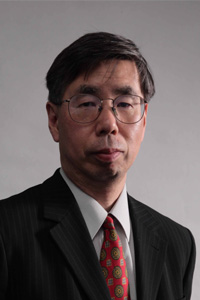Post-Silicon Patchable Hardware
| Speaker | Prof. Masahiro Fujita VLSI Design and Education Center (VDEC), The University of Tokyo and CREST |
|||
| CECS Host | Professor Rainer Doemer | |||
| Location | EH 3206 | |||
| Date & Time | September 23, 2011 Seminar begins at 2:00 PM |
|||
| Abstract | With the shorter time-to-market and the rising cost in SoC development, the demand for post-silicon programmability has been increasing. Recently, programmable accelerators have attracted more attention as an enabling solution for post-silicon engineering change. However, programmable accelerators suffers from 5?10X less energy efficiency than fixed-function accelerators mainly due to their extensive use of memories. This paper proposes a highly energy-efficient accelerator which enables post-silicon engineering change by a control patching mechanism. Then, we propose a patch compilation method from a given pair of an original design and a modified design. Experimental results demonstrate that the proposed accelerators offer high energy efficiency competitive to fixed-function accelerators and can achieve about 5X higher efficiency than the existing programmable accelerators. | |||
| Biography |
Masahiro Fujita received his Ph.D. from the University of Tokyo in 1985. He is a professor in VLSI Design and Education Center (VDEC) at the University of Tokyo. Prior to joining the University of Tokyo in 2000, he was director of CAD for VLSI in Fujitsu Laboratories of America for 6 years. He has done innovative works in the areas of digital design verification, synthesis, and testing. He has authored and co-authored 10 books, and has over 150 publications. He has been given several research awards from Japanese scientific societies. His current research interests include synthesis and verification in higher level design stages, hardware/sfotware co-designs and also digital/analog co-designs. |

